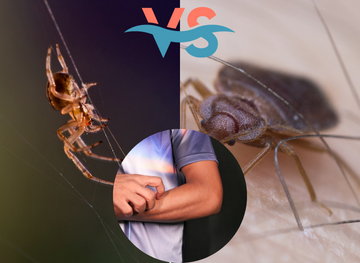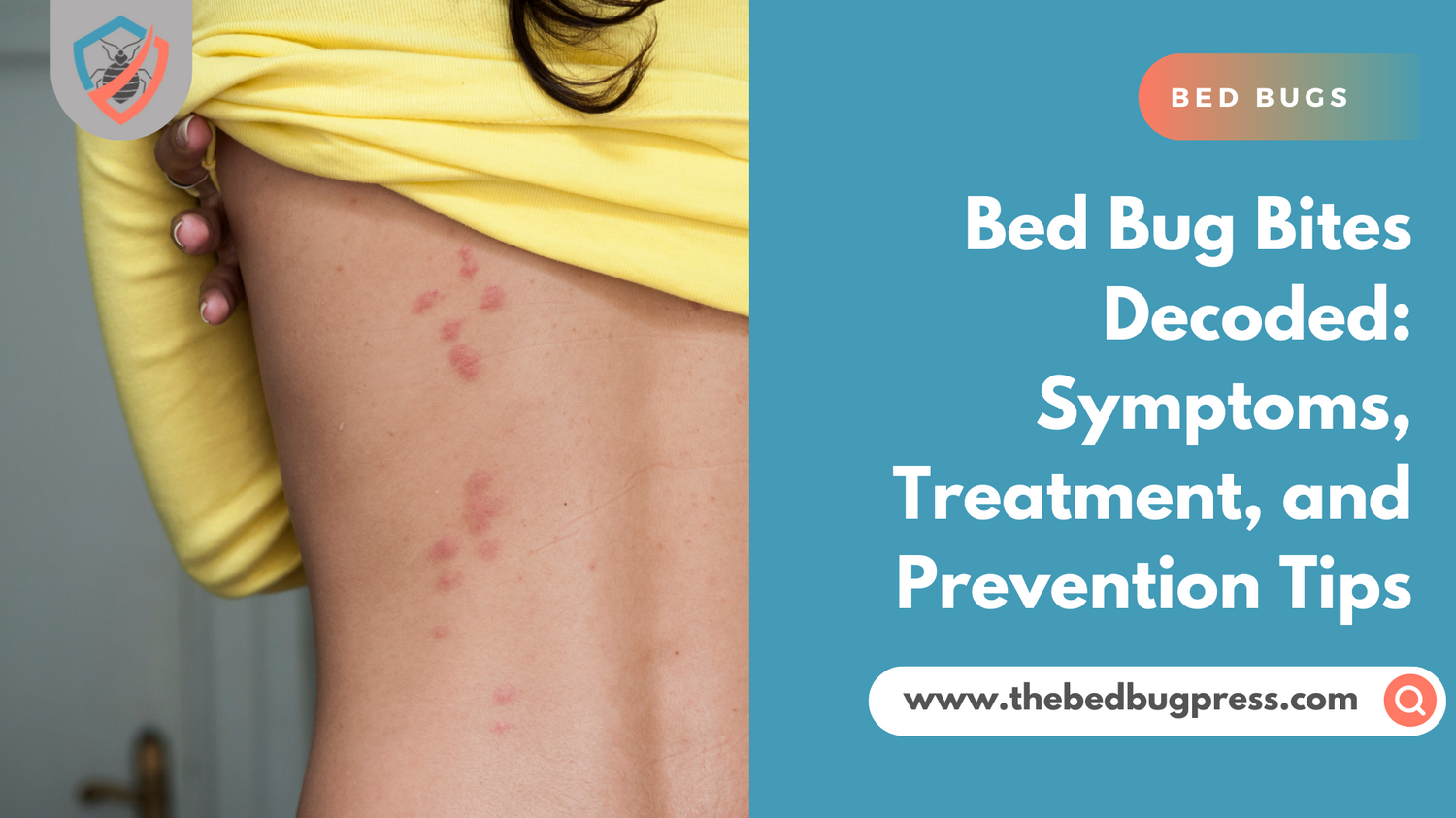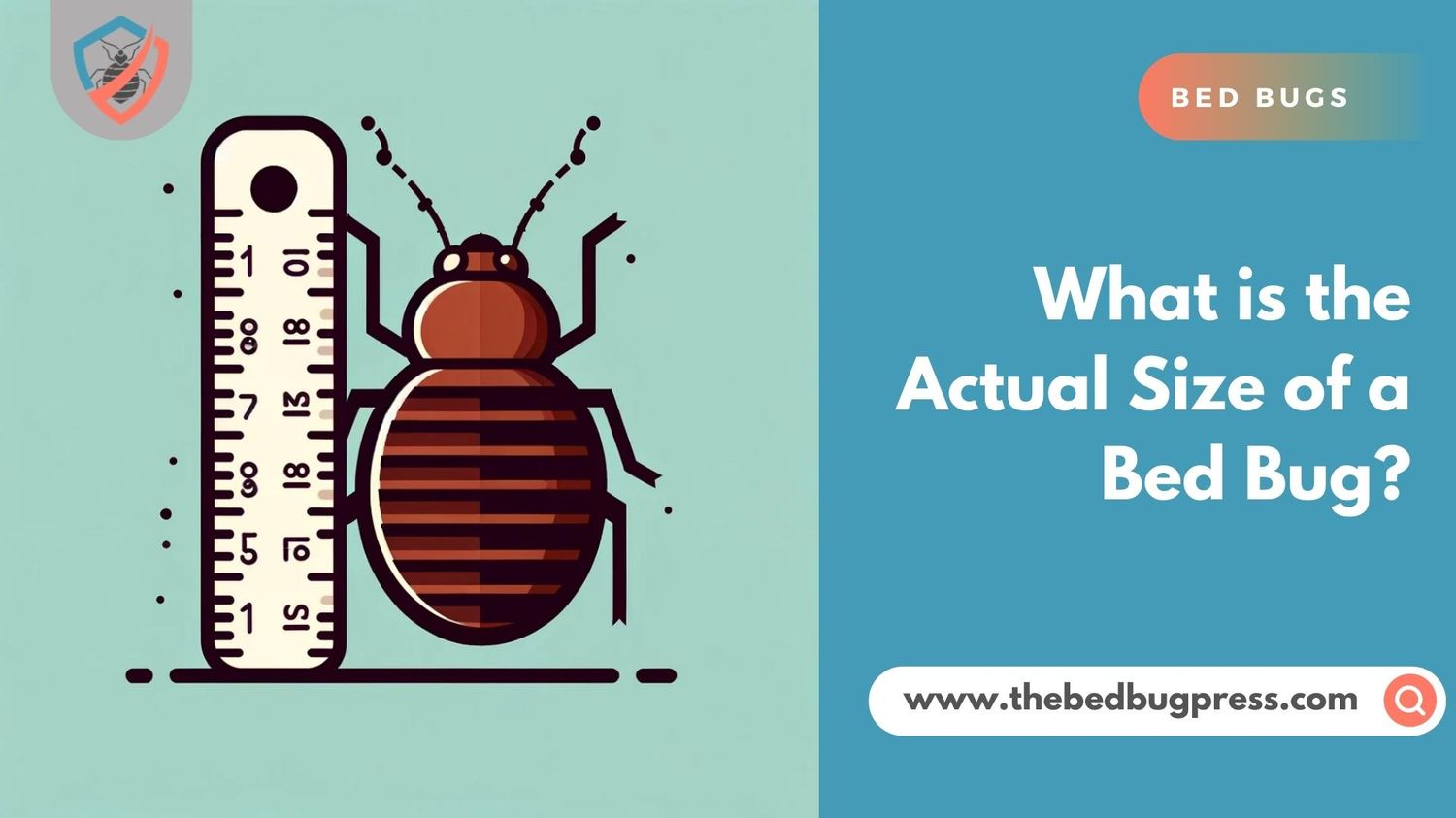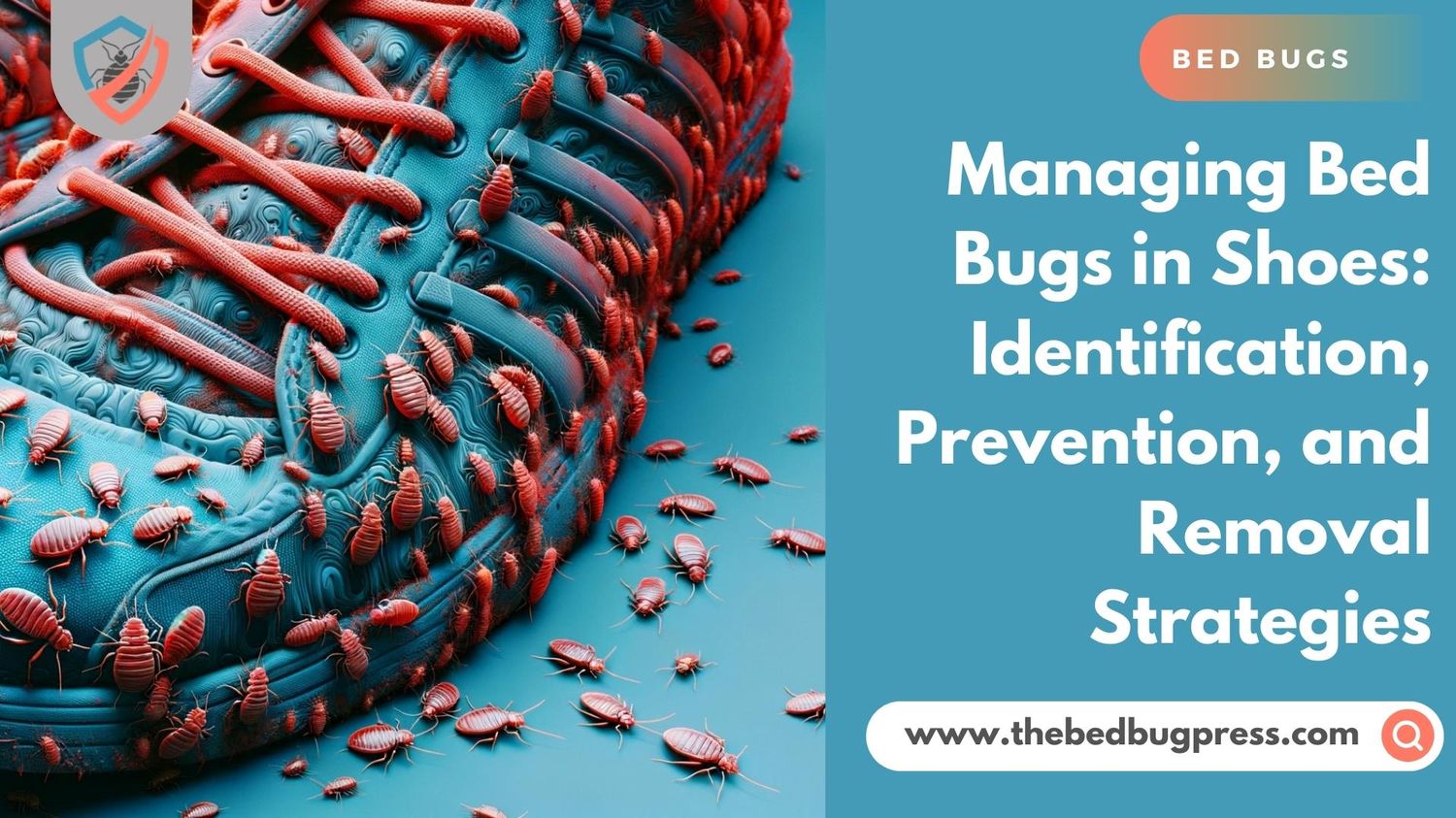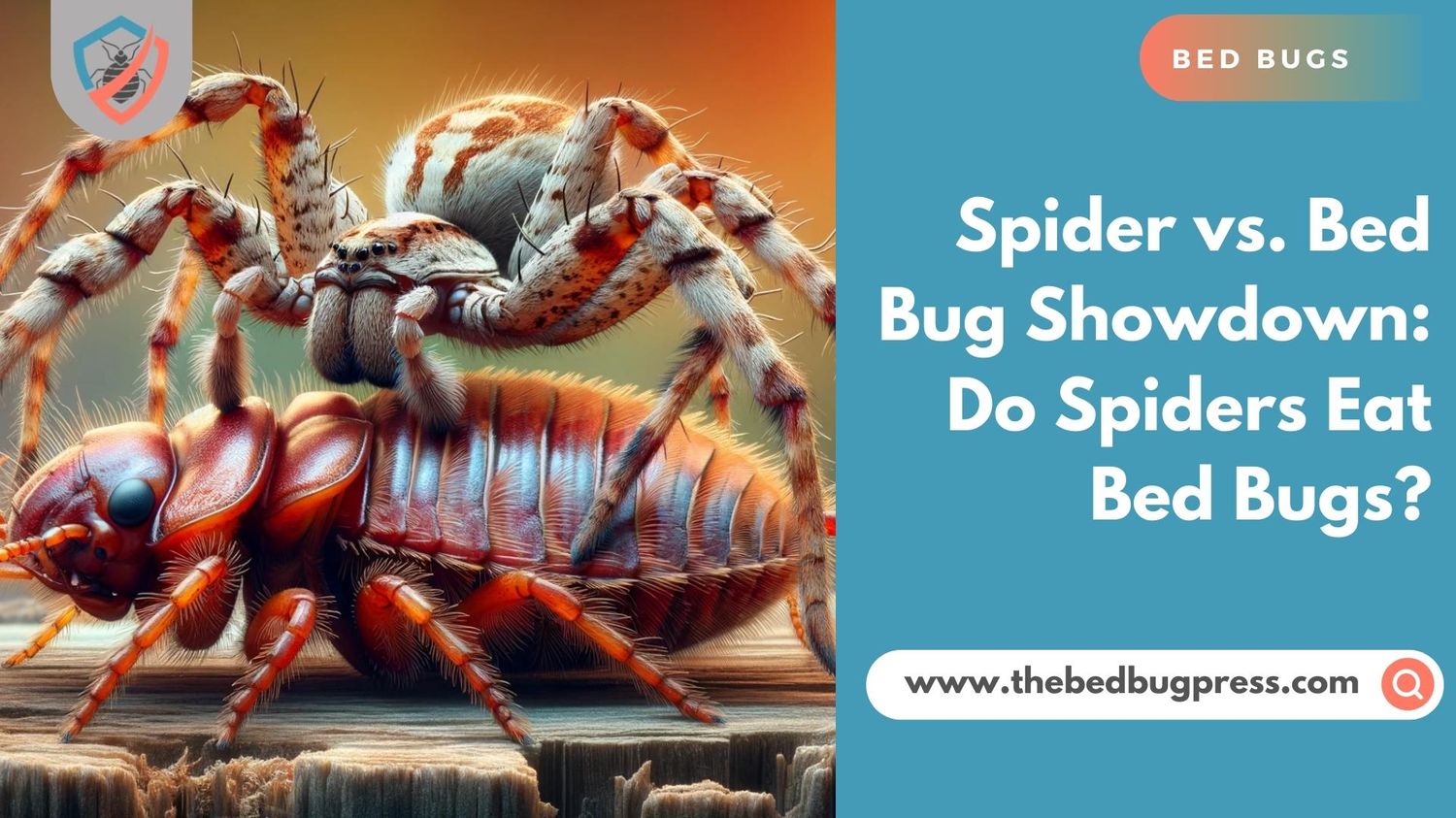Bed bug bites and spider bites can sometimes look similar, but there are key differences to look out for. Here are some of the most common differences between bed bug bites and spider bites:
Bed bug bites:
- Usually occur in a line or cluster of bites, as bed bugs feed multiple times in the same area
- May appear as raised, red welts
- May be itchy
- Occur on exposed skin, such as the arms, neck, and face
Spider bites:
- Usually, only one bite mark is present, as spiders usually only bite once
- Can appear as a small red bump, sometimes with two puncture marks at the center
- May be painful or itchy, depending on the species of spider
- Can occur anywhere on the body
It is important to note that not bed bugs or spiders cause all bites or rashes. If you are unsure what is causing your bites or if you experience any severe symptoms, such as difficulty breathing or swallowing, seek medical attention immediately.
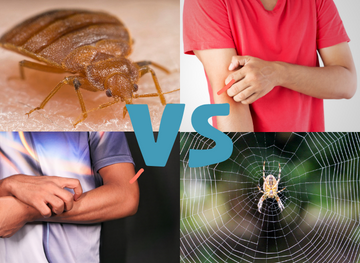
Why Do Bed Bugs Bite?
Bed bugs are parasitic insects that feed on blood from humans, animals, and other warm-blooded creatures. They have a reddish-brown color, and oval shape, and measure about 4 to 5 millimeters in length. Bed bug bites can cause itching, redness, discomfort, and even an allergic reaction. Fortunately, they do not transmit diseases.
Bed bugs have an appetite for human blood, and they typically come out to feed while their host is sound asleep! They use their sharp, beak-like mouthparts to pierce the skin and get what they want. The bites may not be noticed until several days later when redness and itching start to appear.
It’s important to regularly inspect your bed or home for signs of bed bug infestation, such as tiny fecal spots, molted skins or live bugs. If you think you’ve got a problem on your hands, it’s best to contact a pest control professional who can help you get rid of these pesky critters.
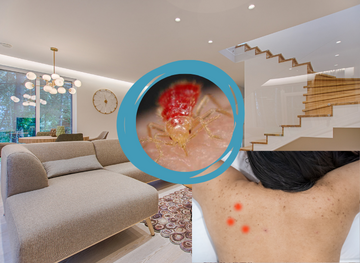
Why Do Spiders Bite?
Spiders bite for a variety of reasons, including self-defense, hunting for prey, and protecting their eggs or young. Most spider bites are not dangerous to humans, but some species of spiders have venom that can be harmful to humans, especially to people who are allergic to spider venom.
When a spider feels threatened, it may bite as a form of self-defense. This is why it is important to avoid handling spiders or disturbing their webs or habitats.
For hunting, many species of spiders use their venom to immobilize their prey, making it easier for them to catch and consume.
In some species, the female spider may bite to protect her eggs or young.
If you are bitten by a spider and experience symptoms such as pain, swelling, redness, or itching, it is recommended that you seek medical attention, especially if the bite appears to be worsening or if you experience symptoms such as difficulty breathing or chest pain, which can be signs of a severe allergic reaction.
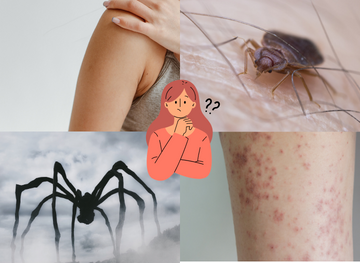
Are Spider Bites Bigger than Bed Bug Bites?
Spider bites and bed bug bites can appear similar in size, as both are typically small and raised. However, the size of a bite varies depending on several factors, such as the size of the insect, the location of the bite, and the individual’s skin type.
Spider bites are typically smaller than a penny, while bed bug bites can range from the size of a pinpoint to the size of a pencil eraser.
It is important to note that some people may experience a greater reaction to spider bites or bed bug bites, leading to larger, more noticeable bites. Additionally, multiple bites from the same insect can sometimes appear as a cluster of bites.
If you are unsure whether a bite is from a bed bug or a spider, it is recommended that you seek medical attention for a proper diagnosis and treatment plan.
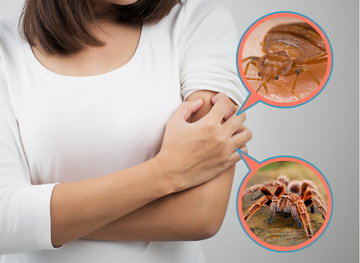
Can’t Tell the Difference Between Bed Bug and Spider Bites
There are two common ways to distinguish between bed bug bites and spider bites.
1. Spider Bites Usually Look Like Puncture Marks
Most spider bites will leave two small puncture marks, which is where the spider’s fangs penetrated the skin. This is in contrast to bed bug bites, which often leave a single, raised, and swollen bite mark.
2. Bed Bugs Bites Occur in Clusters
Bed bugs are known to bite multiple times in the same area, often forming clusters of bites. This is because they feed on multiple occasions, typically in the early morning hours, for several days. Spider bites, on the other hand, are typically isolated incidents, and it is less common for spiders to bite multiple times in the same area.
It is important to keep in mind that everyone reacts differently to insect bites, and the severity and appearance of a bite can vary greatly from person to person. If you are unsure whether a bite is from a bed bug or a spider, it is best to seek medical attention for a proper diagnosis and treatment plan.
| Bed Bug Bites | Spider Bites | |
| Bites | The bites are in groups and have a pattern. These are either inflamed bumps or red, flat patches. | When checking the bites, you’ll see the entry site of the fangs. You’ll usually see a single bite or entry site and the area around it will be swelling. |
| How long will the bites last? | 1 to 2 weeks | 1 week |
| Symptoms | Mild pain associated with itching, redness, and inflammation. When scratched, pus-filled blisters can develop. | The bitten area will have a burning sensation, itchiness, swelling and be painful. May develop Arachnidism, increasing pain in the area, abdominal cramps, paralysis, or sweating. When bitten by venomous spiders, it can cause swelling and pain in the area. Erythema and necrosis are also noted for bites made by venomous spiders. |
| Treatment | Over-the-counter hydrocortisone creams, antihistamines, herbal skin lotions, and other home remedies. Cleaning the area and applying antibiotic creams are also effective. | Anti-histamines and anti-itch creams. Anti-venom injections may also be required depending on the spider that caused the bites. Topical and oral antibiotics may also be required in case increased swelling is noted. |
| When do you get the bites? | They typically bite at night. | Spiders can bite you at any time. |
| Locations of bites | Bites can be found on any part of the body. | Bites appear in groups on the back, torso, arms, and neck. |
Should You Worry After Noticing Bites?
In general, most insect bites are not a cause for concern and will clear up on their own within a few days. However, there are certain situations where bites may be more concerning, and it is important to seek medical attention if you experience the following symptoms:
Severe swelling: If the bite area becomes severely swollen, it may indicate an allergic reaction or an infection.
Signs of infection: If the bite area becomes red, warm, or begins to drain pus, these may be signs of an infection and you should seek medical attention.
Difficulty breathing: If you experience difficulty breathing, chest pain, or a rapid heartbeat, these may be signs of a severe allergic reaction, and you should seek medical attention immediately.
Unusual symptoms: If you experience symptoms such as muscle cramps, nausea, or fever, these may indicate a more serious bite and you should seek medical attention.
Bites from venomous insects: If you have been bitten by a venomous insect, such as a black widow or brown recluse spider, you should seek medical attention right away.
It is also important to seek medical attention if you have a history of allergies or if you are unsure of the type of insect that bit you. In these cases, prompt medical attention can help prevent serious complications and ensure prompt and effective treatment.
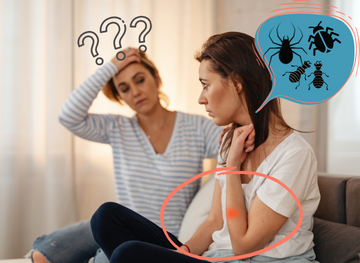
What To Do After Noticing Insect Bites?
If you have been bitten by an insect, here are some steps you can take:
Clean the Bite:
Wash the bite with soap and water to reduce the risk of infection.
Apply a Cold Compress:
Place a cold compress, such as a cloth soaked in cold water, on the bite to help reduce swelling and relieve itching.
Take an Anti-Itch Medication:
Over-the-counter anti-itch medications, such as calamine lotion or hydrocortisone cream, can help relieve itching and discomfort.
Monitor the Bite:
Keep an eye on the bite and be aware of any changes in appearance or symptoms. If the bite becomes red, swollen, or warm to the touch, or if you develop a fever, these may be signs of an infection and you should seek medical attention.
Seek Medical Attention:
If you experience severe symptoms, such as difficulty breathing, chest pain, or a rapid heartbeat, or if you are unsure of the type of insect that bit you, it is best to seek medical attention right away.
It is important to take insect bites seriously, especially if you have a history of allergies or if you have been bitten by a potentially dangerous insect, such as a black widow or brown recluse spider.
Seeking prompt medical attention can help prevent serious complications and ensure prompt and effective treatment.
Are Spider Bites More Severe than Bed Bug Bites
The severity of a bite varies greatly depending on several factors, such as the type of insect, the individual’s health and medical history, and the location and size of the bite.
In general, bed bug bites are not considered to be dangerous and typically cause only minor skin irritation, such as itching and redness. However, some people may experience more severe reactions to bed bug bites, such as an allergic reaction, leading to symptoms such as hives, swelling, and difficulty breathing.
On the other hand, some species of spiders have venom that can be harmful to humans, especially to people who are allergic to spider venom. Bites from venomous spiders, such as black widows or brown recluse spiders, can cause severe symptoms, such as muscle cramps, nausea, and in severe cases, even death.
While most bed bug bites are relatively minor, some spider bites can be much more serious, and it is important to seek medical attention if you experience severe symptoms or if you are bitten by a venomous spider.
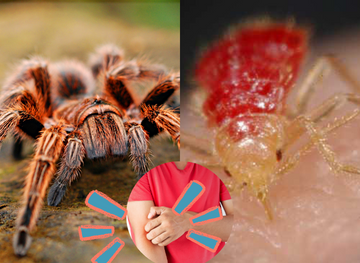
Do You Get Bed Bug Bites More Frequently than Spider Bites?
It is more common to get bed bug bites than spider bites, as bed bugs are much more prevalent and are known to infest homes and other indoor spaces.
Bed bugs feed on human blood, and they are attracted to the warmth and carbon dioxide produced by sleeping people. They typically bite at night while a person is sleeping, and they often leave behind clusters of bites in a row or a group.
Spider bites are less common, as spiders are typically not as interested in biting humans as they are in catching other insects for food. Most spider bites occur accidentally, when a spider is accidentally trapped against the skin or when a person accidentally walks into a spider web.
Keep in mind that not all spider bites are venomous, and most spider bites are not harmful to humans. In fact, many spider bites are not even noticeable and may go unnoticed. On the other hand, bed bug bites can be quite noticeable, and the bites can be very itchy and uncomfortable.
In conclusion, bed bug bites are more frequent than spider bites, as bed bugs are more likely to bite humans in indoor environments. However, you must be aware of the signs and symptoms of both bed bugs and spider bites and seek medical attention if you experience severe symptoms or if you are bitten by a venomous spider.
What To Do If You Notice Getting More Bed Bug Bites?
If you notice that you are getting more bed bug bites, there are several steps you can take to address the infestation:
Confirm the presence of bed bugs: Inspect your bed and surrounding areas for signs of bed bugs, such as tiny reddish-brown insects, small reddish-brown fecal spots, or shed skins.
Clean and wash infested items: Wash all infested bedding, clothing, and other items in hot water and dry them on high heat. Vacuum your home thoroughly, including the furniture, carpet, and any cracks and crevices.
Use insecticide sprays or powder: Apply insecticide sprays or insecticidal dust to the infested areas, paying special attention to the seams and folds of your mattress and box springs, as well as any cracks and crevices in the walls and flooring.
Seek professional help: If the infestation is severe or if you are unable to get rid of the bed bugs on your own, consider hiring a professional pest control company to treat your home.
Prevention: To prevent future bed bug infestations, inspect second-hand furniture and clothing before bringing them into your home, and vacuum your home regularly. When traveling, inspect hotel rooms for signs of bed bugs before settling in.
By following these steps, you can help to get rid of bed bugs and prevent future infestations. If you are experiencing symptoms such as itching, redness, or swelling, it is important to seek medical attention, as these can be symptoms of a bed bug bite or an allergic reaction.
